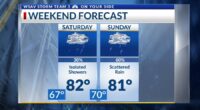Share this @internewscast.com
A common symptom affecting the nose could be a sign of a deadly condition. Nosebleeds could signal high blood pressure, according to experts.
In the UK, about 25% of grown-ups are thought to have high blood pressure. This condition, known as hypertension, forces your heart to work harder than usual to pump blood around the body.
While this may not initially present any problems, prolonged periods can place additional stress on specific organs, resulting in potential damage.
Hypertension significantly contributes to severe health issues, like heart attacks and strokes. Most of the time, high blood pressure has no obvious signs, which means many people might not know they have it.
According to the British Heart Foundation (BHF): “High blood pressure rarely has noticeable symptoms.”
Nevertheless, there can occasionally be some revealing indicators. The BHF identifies nosebleeds as one potential sign of elevated blood pressure.
This specific symptom is a controversial subject among health experts, as research has not confirmed a clear link between high blood pressure and nosebleeds.
The Medical Associates of North Texas states: “You’re not alone if you’ve heard that high blood pressure can cause nosebleeds.
“It’s a common assumption – but the topic is still debatable.
“Most specialists agree that hypertension doesn’t directly cause nosebleeds unless blood pressure is extremely high. However, it may damage the blood vessels in the nose, increasing the likelihood of bleeding.
“Some recent research has found that hypertension may increase your risk of more severe nosebleeds.”
What does the research suggest?
A 2020 study in JAMA Otolaryngology Head and Neck Surgery found that people with hypertension had a 47% higher risk of experiencing nosebleeds. This study examined 35,749 individuals aged around 52 with high blood pressure, comparing them to a similar group without it.
Researchers observed unprovoked nosebleeds, not caused by injury, surgery, or illness, over 14 years. They found that those with hypertension not only had a 47% increased chance of nosebleeds but also experienced more severe bleeding episodes.
They were also 2.7 times more likely to require treatment in an emergency room. The British Heart Foundation (BHF) states that other symptoms of high blood pressure can include blurred vision, shortness of breath, chest pain, dizziness, and headaches.
If you suspect you have high blood pressure, it’s recommended that you consult your GP.













